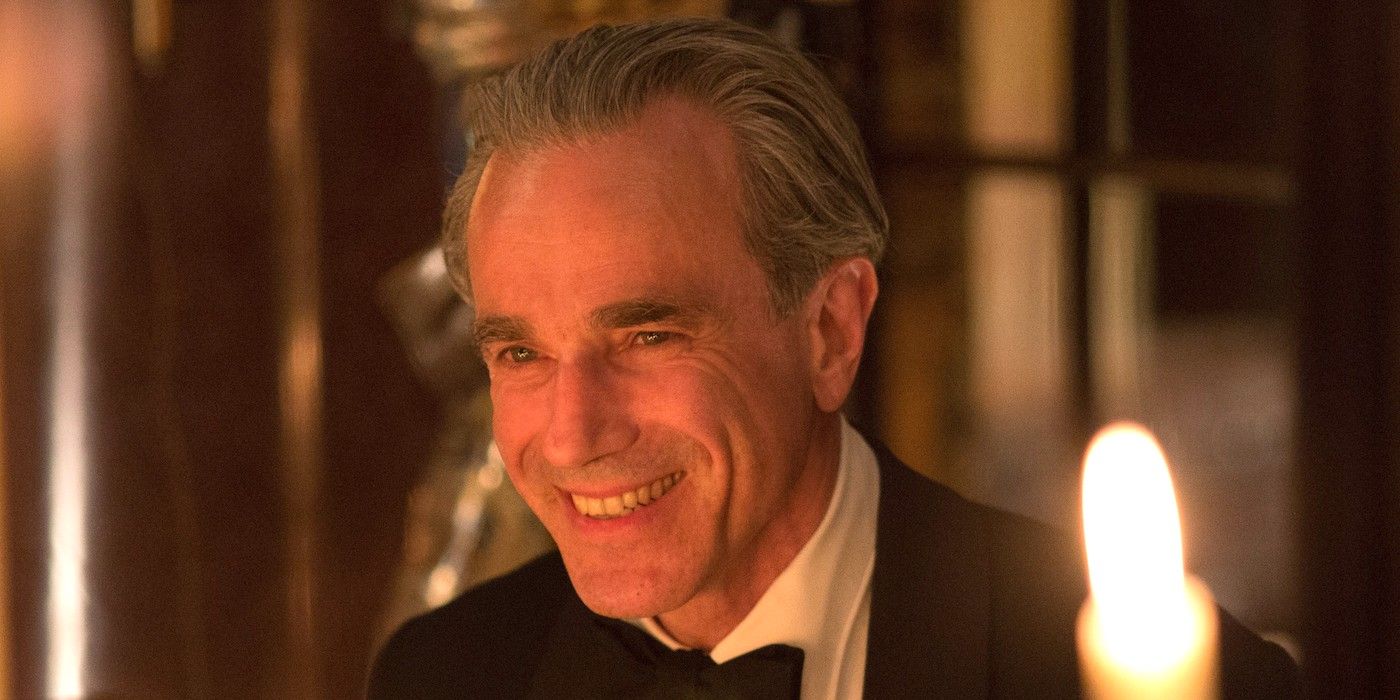The Big Picture
It’s much more common for actors to sing false praises about a show than to admit its flaws. You can hardly blame them though. When a performer is associated with a certain movie or a show, their reputation gets inextricably tied to the project, so, it becomes difficult for them to slander its name. It comes as a huge surprise to see so many actors from HBO’s Game of Thrones speaking out against ill-practices adopted by the show in the treatment of its cast. Notable cast members like Jason Momoa, Emilia Clarke and Iwan Rheon, and more have opened up about how distressing it was for them to go through certain scenes. Given the upsetting subject matter of the show, it’s no surprise they feel that way. But one of the most heart-breaking account comes from Sophie Turner who was extremely young at the time of filming, and was burdened with playing the most traumatizing character.

Nine noble families fight for control over the lands of Westeros, while an ancient enemy returns after being dormant for a millennia.
Release Date April 17, 2011
Cast Nikolaj Coster-Waldau, Liam Cunningham, Maisie Williams, Gwendoline Christie, Rory McCann, Isaac Hempstead-Wright, Conleth Hill, John Bradley
Seasons 8
Studio HBO
Actors Can Get Traumatized From the Characters They Play
For all the glitz and glamor that the profession of acting reflects, it also takes its toll on the performers. It can be troubling for any actor to get so engrossed in a performance that they lose their sense of self. The more they become someone, the less they have of themselves. And sometimes, when the character they’re slipping into goes through tragic events, the trauma can unconsciously pass on to the performer. We have plenty of stories about actors who have been scarred after certain emotionally charged performances. This post-performance trauma is all too real and grave enough to warrant therapies, breaks and, in some extreme cases, even retirements.
When Adrien Broody portrayed the role of a holocaust survivor in the movie The Pianist, he was so absorbed in the character’s pain that he was depressed for a year after filming. In an interview, he revealed that he was deeply disturbed by what he embraced in making the film, and of the awareness that it opened up in him. When Anne Hathaway played the role of an ailing sex worker in Les Miserable, she lost about 25 pounds to prepare for the role and deprived herself of her loved one’s company. Her commitment to the role did win her an Oscar, but she said that she felt no sense of happiness at the achievement after having lived as Fantine for so long. Daniel Day-Lewis who is known to really plunge into whatever character he plays takes years long hiatus between projects because of how difficult they can get. Most recently, he vaguely announced his retirement from acting after his excruciating role in the Phantom Thread. It’s true that all the mentioned actors have delivered a poignant performance, but it doesn’t take away from the fact that they had to suffer psychological agony trying to sever themselves from their characters, especially when the character they depict goes through traumatic events.
Sophie Turner’s Character Suffers One of the Worst Fates in ‘Game of Thrones’
With that context, consider the lives and fates of characters in Game of Thrones. It’s a show that extracts an emotional toll from all its characters. No one is spared of the unimaginable horrors that the show inflicts upon them. After all, when you play the game of thrones, whether you want to or not, you either win or you die. Characters are orphaned, maimed, sexually assaulted, and killed off without any warning. But even among the heaps of tragedy scattered throughout the Seven Kingdoms, it’s Sophie Turner’s character, Sansa, who suffers the most. When we first meet Sansa, she is a sheltered, naive little girl who wants nothing more than to marry a prince and become a queen one day. Yes, she was sometimes a bit bratty and spoiled, as you might expect from the daughter of a lord, but she was meek, kind-hearted, and got squeamish to the sight of violence. Her personality was starkly opposed to the harsh, rugged landscape of the North she grew up in.
But when she finally reaches King’s Landing, she goes through gradual hellish rounds of loss and despair that robs her of her childlike innocence. Soon after King Robert Baratheon (Mark Addy) dies, Sansa gets manipulated by Cersei (Lena Headey) into betraying her father, and in a desperate attempt to save Ned (Sean Bean), she admits that he was in the wrong and begs for his life. But all of it turns out to be for nothing because in the end, Joffrey (Jack Gleeson) had Ned beheaded right in front of Sansa. And if that wasn’t enough Joffrey forced her to look at her father’s head put up on a spike. Some time later, she learns that her mother and brother have been murdered, and all the while being held captive by the same people who killed her family. From then on, she gets passed around from one man to another and treated like a gambling chip, until she finally gets wed to the sadistic Ramsay Bolton, who rapes her in a scene so horrific and controversial that it altered the execution of sex scenes for the entire industry.
Sophie Turner Started ‘Game of Thrones’ at a Young Age
It doesn’t matter how skilled or experienced the actor is, anyone can become overwhelmed by the character they embody. But when the actors are mature they have their life experiences, their memories, and their identity to hold on to. But what if the performer is young and still in their formative years? That’s where the trouble begins. In our early years, we’re all attempting to etch out our identities, embracing and shedding different personas before we finally find our whole self. But when you have to act as an entirely different person for an extended period of time, it gets very easy to lose yourself in a maze of the character. There’s a reason why we hear so many stories about child actors struggling with mental health complications and substance abuse disorders. It’s difficult juggling a new identity when you still haven’t figured out your own. And this is something that Sophie Turner went through during her years on Game of Thrones.
Turner was only 15 when she took up the role of Sansa in the show, but on set, she was treated like an adult. In an interview with Elle, Turner talked about how she was basically raised by the producers of the show, alongside her parents, but “in a business sense and to be an independent working woman.” And though the show has ended, she says that she still carries a large chunk of Sansa in her as she always will. She played the role of Sansa for over 10 years, through her teenage years and up to her mid 20s, and in that duration she didn’t really have the time to figure out who she was as a person. In an interview in 2022, she shared that she was only recently learning to evolve as a person, something she “should have evolved into about ten years ago.”
Although Turner did an admirable job portraying Sansa, the scenes she was filming were often thematically heavy. Her character goes through unimaginable horrors throughout the series. Having to channel and convey the right emotions would inevitably have been a painful experience. In that same interview, Turner shared that since she was very young at the age of filming Game of Thrones there were many dark elements that she couldn’t comprehend, but she’s certain that she’ll “exhibit some symptoms of trauma down the road.” As a result, she developed her own coping mechanisms, like trying to have as much fun as she could in-between takes with lots of songs and dances, a practice she continues today.
While Game of Thrones, tried to give Sansa a happy ending, turning her into the queen of the north and making her a fierce and competent ruler, it would be naive to think that Sansa is not permanently affected by the horrors she faced in her young life. Inevitably, the trauma that Turner experienced while portraying Sansa lead to her own struggle with anxiety and depression, something that she manages through check ins with her therapist.
Game of Thrones is streaming on Max on the U.S.
Watch Now



.jpg)





